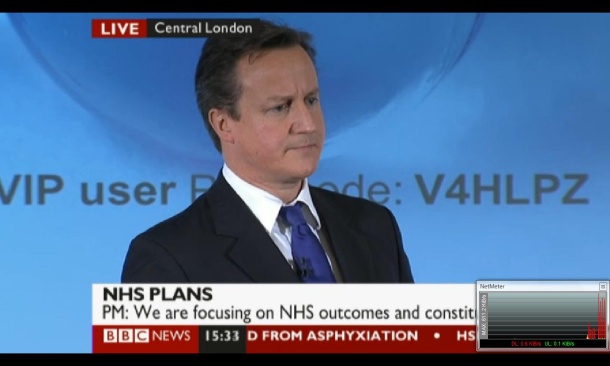Cameron's conference Wi-Fi code calamity

OK, it's not much of a calamity. But when you want to be seen as leading a government intent on making the internet a safer place, heading up global cybersecurity and locking down the nation's digital jewels, it's a bit bad to be the agent of — oh, I don't know — encouraging attacks on VIP laptops.
So it's a bit of a shame that David Cameron has just appeared live on national TV from a conference in a hotel in central London posing in front of a cinema-sized screen that's giving away... well, what do you think?

To us at ZDNet UK, it looks like the VIP password for the conference Wi-Fi. Which means anyone capable of getting within sniffing distance can get access to that network — and can start to inspect packets, scan ports, investigate vulnerabilities and so on. In our experience, hotel Wi-Fi codes work everywhere in the building, which should be interesting for anyone with a laptop watching the telly in a room upstairs, and as we know, Wi-Fi can be the vector for some nasty attacks on personal authentication.
So, to help Dave from PR and his security experts, here's a recap on safe passwords from DirectGov's "how to be secure online" advice page:
Good passwords should:
* never be shared (including with helpline staff), written down or observed * be at least seven characters long * be a mixture of lower and upper case letters, numbers and other keyboard characters * changed regularly - every three months is good guide * not be the same on all the sites you use
Anything else we can do, just let us know.